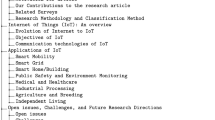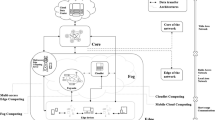Abstract
In information systems, it is critical to reduce the total electrical power consumption of computers and networks in order to realize the eco society. In our previous studies, a pair of PCB (power consumption-based) and TRB (transmission rate-based) algorithms are proposed to select one of servers so that the total power consumption of the servers is reduced for communication-based applications. In addition, the PCB algorithm is shown to be more useful for reducing the total power consumption than the TRB one. However, we consider only how much amount of electric power a server is expected to consume to transmit a file to a new requesting client in the PCB algorithm. Here, the server might be transmitting files to other clients. Therefore, we have to estimate the power consumption to transmit a file to a new client by considering how much power consumption the server would spend to transmit files to other clients. In this paper, we newly propose an extended power consumption-based (EPCB) algorithm by improving the PCB algorithm by taking into consideration how much power a server consumes to transmit files to every requesting client. In the evaluation, we show the total power consumption of servers can be more reduced by the EPCB algorithm than the PCB and TRB algorithms.





Similar content being viewed by others
References
Aikebaier A, Enokido T, Takizawa M (2009) Energy-efficient computation models for distributed systems. In: Proceedings of the 12th international conference on network-based information systems (NBiS2009), pp 29–36
Akyildiz IF, Kasimoglu IH (2004) Wireless sensor and actor networks: research challenges. Ad Hoc Netw J 2:351–367
Enokido T, Suzuki K, Aikebaier A, Takizawa M (2009) Algorithms for reducing the total power consumption in data communication-based applications. In: Proceedings of 24th IEEE international conference on advanced information networking and applications (AINA-2010), pp 142–149
Enokido T, Aikebaier A, Takizawa M (2010a) A model for reducing power consumption in peer-to-peer systems. IEEE Syst J 4(2):221–229
Enokido T, Aikebaier A, Takizawa M (2010b) Power consumption-based server selection algorithms for communication-based systems. In: Proceedings of the 13th international conference on network-based information systems (NBiS2010) (2010, accepted)
Enokido T, Suzuki K, Aikebaier A, Takizawa M (2010c) Laxity based algorithm for reducing power consumption in distributed systems. In: Proceedings of the 4th international conference on complex, intelligent and software intensive systems (CISIS2010), pp 321–328
Yang Y, Xiong N, Aikebaier A, Enokido T, Takizawa M (2009) Minimizing power consumption with performance efficiency constraint in web server clusters. In: Proceedings of the 12th international conference on network-based information systems (NBiS2009), pp 45–51
Acknowledgments
This research was partially supported by the strategy research project of Seikei University and MEXT, Grant in Aid for Building Strategy Research Information.
Author information
Authors and Affiliations
Corresponding author
Rights and permissions
About this article
Cite this article
Enokido, T., Aikebaier, A. & Takizawa, M. An extended power consumption-based algorithm for communication-based applications. J Ambient Intell Human Comput 2, 263–270 (2011). https://doi.org/10.1007/s12652-010-0044-9
Received:
Accepted:
Published:
Issue Date:
DOI: https://doi.org/10.1007/s12652-010-0044-9




